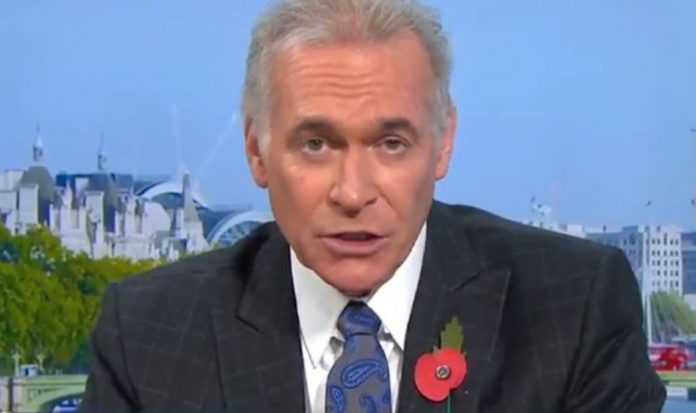The UK could be subject to “much more hospitalisations” from coronavirus if Britons make “a huge mistake” amid vaccine announcements. This comes after pharmaceutical company Pfizer has said that early data suggests its potential vaccine is “more than 90 percent effective” against COVID-19. ITV’s Good Morning Britain medical expert, Dr Hilary Jones, urged people to not forget to follow the restrictions.
He told viewers: “It’s terrific news, it’s absolutely wonderful, it’s the news that everyone’s been waiting for, the best Christmas present that anybody could hope for really. However it’s not Armistice Day, it’s not all over.
“The worst thing that could happen is that people start celebrating prematurely and carrying on as if we’re not still in the middle of a second wave of a pandemic.
“That would be a huge mistake and result in much more hospitalisations.
“This vaccine that is 90 percent effective in a relatively small trial of 44,000 people seems to be very well-tolerated, very minimal side effects, 90 percent effective, that’s great news.”
READ MORE: Coronavirus vaccine: WHO may stop nations ‘monopolising’ vaccine
Dr Hilary continued: “However, it’s very unstable as a vaccine, it has to be stored at -70 to -80 degrees, which itself creates logistical problems in getting it to the place where it will be given out as an immunisation.
“Because it’s a novel vaccine, you might have to wait for people for 15 minutes or so in a surgery to make sure that they’re okay before you let them go.
“It comes in 500 vials at a time so you’d probably have to have two GPs working flat out all weekend to vaccinate 2,000 people.
“We will need billions of doses to vaccinate the entire world.”
Boris Johnson has confirmed that the UK has ordered 40 million doses of the vaccine.
However, he added that the Pfizer COVID-19 vaccine is still “in its infancy”.
The Prime Minister outlined the remaining steps left to ready the vaccine.
He said that while one hurdle has been overcome, there are several left.
He also stressed that testing remains central in the fight against the virus.







